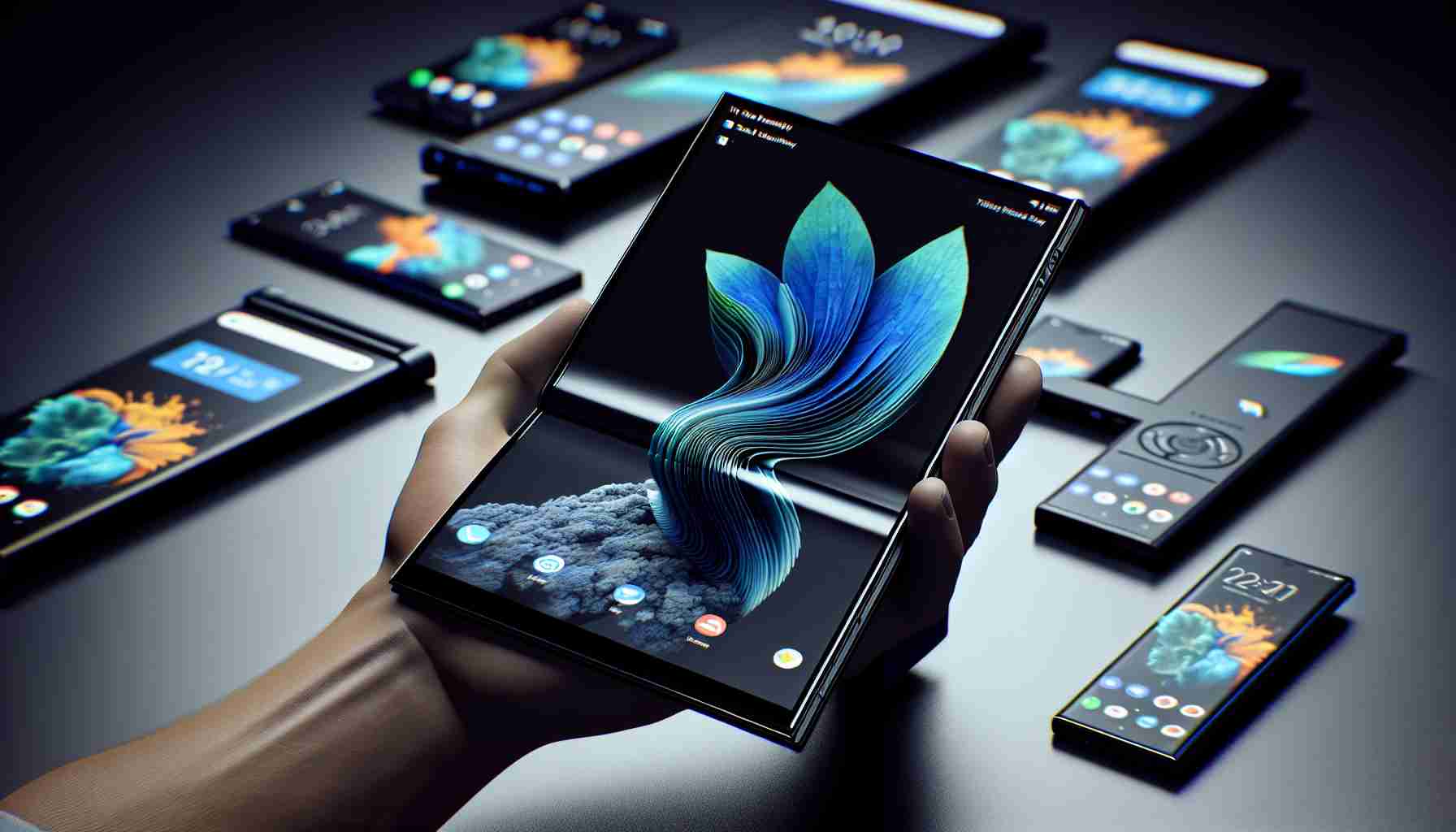Recent developments in mobile technology indicate a potential comeback for LG in the smartphone arena. Departing from conventional designs, LG is venturing into the promising realm of foldable displays, aiming to address common issues faced by existing foldable devices like the Samsung Galaxy Flip.
A key focus for LG’s new device is enhancing the durability and flexibility of foldable screens. To achieve this, LG has developed a high-rigidity support structure, complemented by a strategic opening pattern in the foldable area. This is coupled with adhesive layers featuring variable hardening levels, a method expected to not only bolster folding performance but also reduce visual imperfections on the screen.
Moreover, LG’s recent patent emphasizes the growing demand for portable devices with larger screens, particularly among users of multimedia content, such as videos and games. The challenge has always been balancing the size with portability, and LG’s innovative design may hold the solution, enhancing user experiences across board.
This foldable venture comes on the heels of another intriguing concept for an “rollable” device, initially introduced with the LG Rollable. Although this project was halted, LG’s continuous exploration suggests potential routes for rejuvenating the brand’s influence in the smartphone market.
With the rapid technological advancements led by competitors such as Samsung, which is also exploring foldable technologies, LG might not only reclaim its market position but lead with groundbreaking enhancements. Despite a preference for traditional models among consumers, LG’s patent might also signal an avenue to license technology to other major players. Could a great comeback be on the horizon for LG in the smartphone sector?
The Foldable Future: How LG’s Smartphone Innovations May Reshape Our Lives
In the cutting-edge world of mobile technology, where giants like Samsung are continuously setting the pace, LG’s ambitious foray into foldable smartphones marks a significant shift. But beyond the technological hype, what does LG’s venture mean for individuals, communities, and entire nations?
Impact on Daily Lives and Consumer Choices
LG’s focus on foldable displays addresses a critical demand among consumers: larger screen real estate without sacrificing portability. For everyday users, this translates to enhanced multimedia experiences—think watching films or gaming on the go with cinematic visuals. The promise of increased durability from LG’s patented design also allays a significant concern: the susceptibility of foldable screens to damage. This could revolutionize how people interact with their mobile devices, pushing the boundaries of mobile entertainment and productivity.
Community and Environmental Concerns
Technological advancements invariably bring about discussions on sustainability. The increased complexity and materials used in foldable phones could spark environmental debates. Will LG’s innovations prioritize environmentally friendly manufacturing processes, or could this lead to increased electronic waste? Communities may push for sustainable practices, shaping corporate responsibilities in a tech-driven future.
Economic Influence on Countries
For countries with significant technological sectors, the resurgence of LG as a competitor in the foldable smartphone market can herald economic opportunities. Korea, LG’s home country, could see a manufacturing boom, creating jobs and stimulating related industries. However, it could also escalate the technological arms race in regions like Silicon Valley or China’s burgeoning tech hubs.
Interesting Facts and Controversies
– LG’s pivot to foldables resurrects its historical role as a tech innovator. Interestingly, LG had also revealed a “rollable” phone design, suggesting ambitious plans that could rival even the advanced concepts of other tech giants.
– The foldable space is fraught with challenges. A known controversy is the fragility of current foldables, which have been plagued by screen creases and structural vulnerabilities. Will LG’s advancements resolve these issues or merely introduce new ones?
Advantages and Disadvantages
Advantages:
– Enhanced User Experience: Larger effective screens without increasing the device’s footprint.
– Potential Market Leadership: By addressing known failings of existing models, LG could seize a leadership role in a lucrative market niche.
Disadvantages:
– Cost and Pricing: Foldable technologies are expensive to produce, which may translate to higher consumer prices, potentially limiting market reach.
– Durability in Real-World Conditions: Despite improvements, the real-world performance of foldables remains to be tested over time.
Questions Facing the Industry
– Will LG’s Innovations Influence Competitors? If successful, LG’s designs could set new industry standards, prompting other manufacturers to adapt and innovate.
– Are Consumers Ready to Embrace Foldables? Despite the allure, traditional slabs remain popular. Can LG bridge the gap between novelty and necessity?
In conclusion, while LG’s path into the foldable landscape is laden with potential, it poses both risks and rewards. Whether this signals a transformative step or a temporary detour in mobile evolution depends largely on execution and market reception. For more insights into the world of tech innovation, visit the Phone Arena or The Verge for the latest updates.























